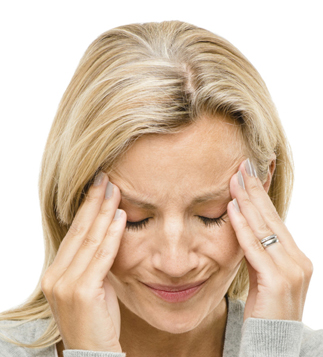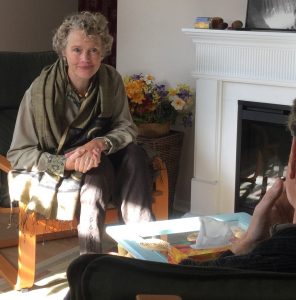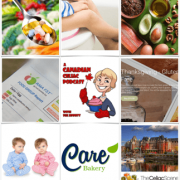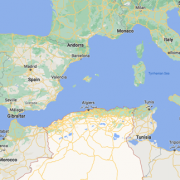Celiac Counsellor’s Corner – Sherry Scheideman, RCC
- Want to get off the cycle of pain? The physical pain of celiac disease makes us angry, desperate, frustrated, and afraid. This emotional pain makes the physical pain worse. We’re already dealing with cramps or mouth sores or whatever it is, and then we add the extra suffering of anger or sadness or fear on top of it — putting us in a cycle of increasing pain. Here’s how to get off that cycle of increasing pain.

- Celiac Counsellor’s Corner* is a place where Sherry Scheideman, M.A., Registered Clinical Counsellor, responds to your questions about the emotional and social issues that celiacs face. Diagnosed with celiac disease herself in 2001 in Victoria, BC, Sherry draws upon personal experiences and a Master’s Degree in Counseling to support you in transcending this ‘life transition’ and turning it into an opportunity to live your best life – ever.
- Do you have a comment or question for Sherry?
The physical and emotional pain cycle goes like this:
- We feel the physical symptom.
- We wish the physical symptom weren’t happening.
- We react with anger, desperation, sadness, fear, etc.
- These emotions create tension in the body.
- The physical symptom gets stronger in order to overpower the tension.
- The strengthened physical symptom, plus its battle with the tension, produces PAIN.
- The cycle loops back to step one and starts again – and the physical and emotional pain increase with each loop through the cycle.
 Fortunately, we have the power to interrupt this cycle at Step Two. Instead of wishing the physical symptom weren’t happening, we can simply accept it. Then, the cycle looks like this:
Fortunately, we have the power to interrupt this cycle at Step Two. Instead of wishing the physical symptom weren’t happening, we can simply accept it. Then, the cycle looks like this:
- We feel the physical symptom.
- We accept that our body is like that right now (instead of resisting it).
- We respond with curiosity and openness (instead of anger, desperation, and fear).
- We relax (instead of tensing).
- The physical symptom does what it does (without needing to get stronger in order to fight tension).
- We experience the physical symptom as SENSATIONS (rather than pain).
- The cycle may loop back to step one and start again – and our acceptance and compassion for ourselves and others increases with each loop through the cycle. Or, if the physical symptom has finished its work and faded away, we may step off the cycle until a symptom shows up again in the future.
The key to transforming the pain cycle is to think of the symptoms as SENSATIONS instead of as PAIN. This takes away the judging.
When the sensations are strong, it is hard to experience them without tensing up and hating them. But the more you do it, the more skilled you get — and the less pain is in your life.
Celiac disease gives us great practice at this. Then, when we meet other difficulties in life, we have the skills to respond with less judgment and more openness. We become nicer people!
Thank you, Celiac Disease.
Sherry
- If you have a celiac-related emotional or social issue you’d like me to address, please leave a comment in the Facebook field below or click here.
- View previous Celiac Counsellor Corners enter ‘Sherry‘ into the search field at the top right of this page

“Life happens! Why not love it?”
“Being diagnosed with celiac disease and going gluten-free has challenged me to develop inner resources that I never knew I had, and I’m grateful for that. As a counsellor, I love to help other celiacs find their own gifts within the challenges of the disease, and to facilitate healing. Why not let your celiac disease motivate you to be your best self?”
- About Sherry Scheideman
- What happens in a session?
- Not in Victoria? No Problem. Sherry does Skype
- Be inspired – Sherry’s Blog
- Sherry Scheideman on Facebook
- Contact Form
Sherry writes about the issues that we as celiacs face in Celiac Counsellor’s Corner. The following topics – and more – will be addressed:

- blaming ourselves or feeling guilty for having the disease
- feeling frustrated and sad about all the food we can’t have anymore
- facing social, familial, and workplace difficulties because we can’t eat what everyone else is having
- being afraid we might not be able to get anything safe to eat when we’re out
- having to ask endless questions about food to make sure we can eat it
- having to endlessly refuse offerings of food in order to stay safe
- occasionally getting “glutened” and then enduring not only the illness but possibly also the blame from ourselves
- how to handle gluten-free shaming
In her articles, Sherry will examine how we can feel like victims as we face the issues that celiac disease presents — and then will explore how these issues give us the opportunity to become our best selves as we rise to meet their challenges. We may find that we can even be grateful to celiac disease for giving us the challenges we need.
- As Pema Chodron notes, “When we reach our limit, a hardness in us will dissolve. We will be softened by the sheer force of whatever energy arises – the energy of anger, the energy of disappointment, the energy of fear. That very energy pierces us to the heart, and it opens us. Reaching our limit is like finding a doorway to sanity and the unconditional goodness of humanity.”
- *Information and perspectives provided in Celiac Counsellor’s Corner are intended to provide general information, without independent verification on the part of The Celiac Scene for the accuracy of the information provided to it. The information is specifically not intended to be a substitute for medical diagnosis or treatment by your physician or other health care professional. You should always consult your own physician or other health care professionals about any medical questions, diagnosis, or treatment, especially before trying any diet. The Celiac Counsellor’s Corner does not accept any liability for any injury, loss or damage incurred by use of or reliance on any content contained herein.













